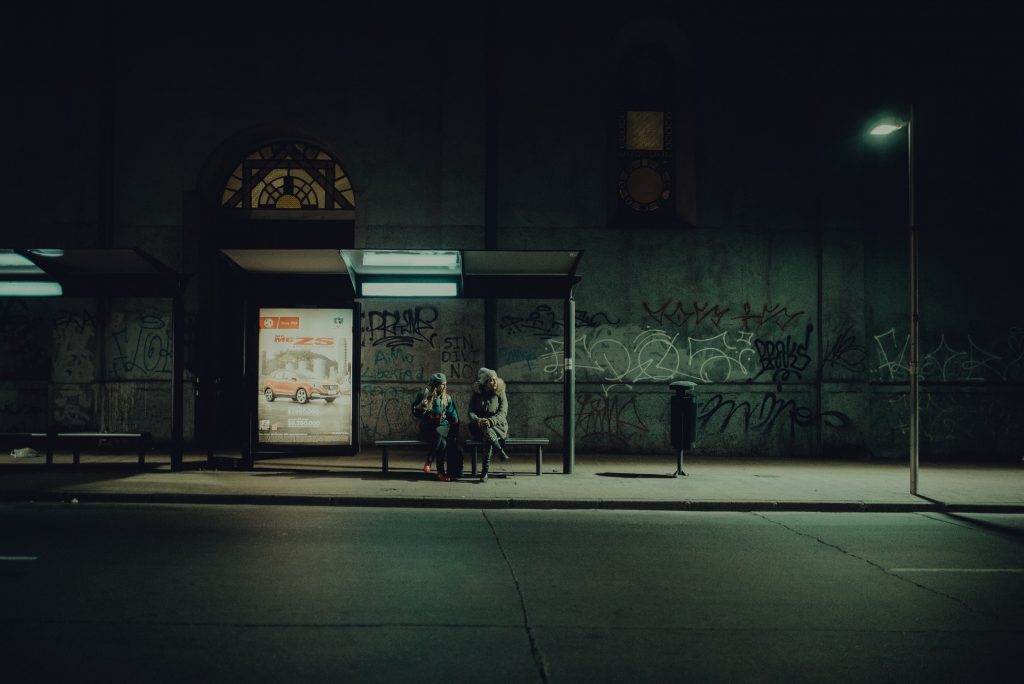
This spring, I was standing with a group of young people in front of a church in McElderry Park, an East Baltimore neighborhood that’s been pinned beneath the intersection of over-policing and under-investment. The group was there to work alongside neighbors as they prepared garden beds behind the church for summer planting and pulled weeds from a labyrinth. They had left their cars timidly, taking in the streetscape with wide eyes. Many in the group had participated in “service days” in their home communities, had experience packing lunches for people they would never meet or painting houses for families they didn’t know. It’s easy to say we’ve helped someone if we never meet them. The group was eager to step inside or to walk behind the garden fence, into a place that felt protected or familiar, but we stopped on the sidewalk.
I work for the Center, a mission initiative of the Presbytery of Baltimore. We accompany congregations as they step out of their sanctuaries to build relationships and more just communities with their neighbors. We work alongside local faith communities here, and also host groups from across the United States that come to lend extra hands and feet to the year-round justice ministries of these local churches and community organizations, to learn from them so they might return home and do the same.
Each day before we work, we pause to frame the day. We read about Jesus wandering through Samaria, about Moses standing before the burning bush, about Mary singing her Magnificat. On the sidewalk with the group in McElderry Park, we read from Isaiah.
Is not this the fast that I choose: to loose the bonds of injustice, to undo the thongs of the yoke, to let the oppressed go free, and to break every yoke?
“Do you smell that?” someone interrupted. They had finally stood still long enough to notice a mixed aroma of weed and car exhaust.
“Hush,” someone else hissed.
Is it not to share your bread with the hungry, and bring the homeless into your house; when you see the naked, to cover them, and not to hide from your own kin?
The group started to look around with more curiosity. One woman asked later where all the trees were. She said she felt exposed and thought it was partly due to what she felt were missing tall shade trees like the ones she had in her neighborhood. In front of the church, a couple of trees had been planted recently but were still too small to provide shelter, too skinny to hide behind.
If you remove the yoke from among you, the pointing of the finger, the speaking of evil, if you offer your food to the hungry and satisfy the needs of the afflicted, then your light shall rise in the darkness and your gloom be like the noonday. … you shall be like a watered garden, like a spring of water, whose waters never fail.
Overhead, a helicopter circled, searching for someone a few blocks away. I paused until it passed, and in the silence, I noticed the tulips that neighbors had planted were blooming in the beds. The clay soil makes all Baltimore plants stubborn, but as they waved in the breeze under the passing helicopter, these tulips seemed especially tenacious. A woman stopped to look at them with her curious toddler.
Your ancient ruins shall be rebuilt; you shall raise up the foundations of many generations; you shall be called the repairer of the breach, the restorer of streets to live in.
Thunk. Th-tttt-thunk. A car rumbled down the uneven pavement past us. The group jumped.
“Dang,” someone said. “It’s not a metaphor. Restorers of streets…repairers of the breach…”
Reading scripture on the street sounds different than it does when it’s read from pulpits. It breathes more freely. Sometimes, I’m asked if we could move somewhere quiet so everyone might hear better. But the sounds and smells from the sidewalk help us understand with more clarity than somewhere seemingly untouched by life in the street ever could.
This group of young people had heard Isaiah 58 before, but when they stood out in front of their partner church for the week, shoulder to shoulder with neighbors, and heard a car thunder over potholes left unrepaired, something changed. It became real.
It is tempting, especially when we show up to help, to read ourselves as the ones God has called to lead the charge for justice.
Before we turn to our work, we leave our visitors with a charge for the day: “Notice the ways the neighbors leading you today embody Isaiah’s promises.”
McKenna Lewellen is Program Coordinator at The Center, a mission initiative of the Presbytery of Baltimore, and a member of the 2018 ICJS Justice Leaders Fellowship.
Baltimore is part of a national conversation around questions of justice, race, and community. Members of the ICJS Justice Leaders Fellowship consider how Jewish, Christian, and Muslim teachings and practice can contribute to the public conversation about (in)justice. Opinions expressed in this blog are solely the author’s. ICJS welcomes a diversity of opinions and perspectives. We do not seek a single definition of justice between or within traditions.